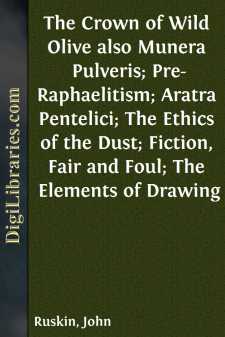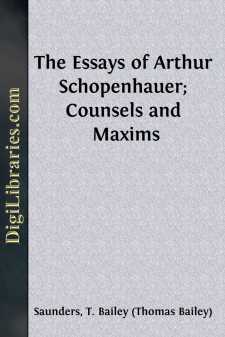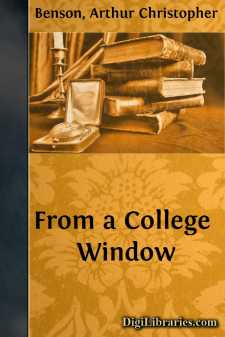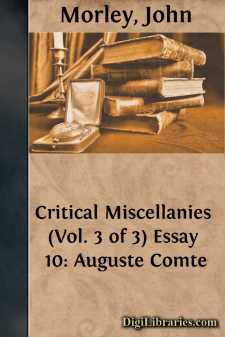Categories
- Antiques & Collectibles 13
- Architecture 36
- Art 48
- Bibles 22
- Biography & Autobiography 813
- Body, Mind & Spirit 142
- Business & Economics 28
- Children's Books 14
- Children's Fiction 11
- Computers 4
- Cooking 94
- Crafts & Hobbies 4
- Drama 346
- Education 46
- Family & Relationships 57
- Fiction 11828
- Games 19
- Gardening 17
- Health & Fitness 34
- History 1377
- House & Home 1
- Humor 147
- Juvenile Fiction 1873
- Juvenile Nonfiction 202
- Language Arts & Disciplines 88
- Law 16
- Literary Collections 686
- Literary Criticism 179
- Mathematics 13
- Medical 41
- Music 40
- Nature 179
- Non-Classifiable 1768
- Performing Arts 7
- Periodicals 1453
- Philosophy 64
- Photography 2
- Poetry 896
- Political Science 203
- Psychology 42
- Reference 154
- Religion 513
- Science 126
- Self-Help 84
- Social Science 81
- Sports & Recreation 34
- Study Aids 3
- Technology & Engineering 59
- Transportation 23
- Travel 463
- True Crime 29
Sort by:
by:
John Ruskin
PREFACE. Twenty years ago, there was no lovelier piece of lowland scenery in South England, nor any more pathetic in the world, by its expression of sweet human character and life, than that immediately bordering on the sources of the Wandle, and including the lower moors of Addington, and the villages of Beddington and Carshalton, with all their pools and streams. No clearer or diviner waters ever...
more...
Recently I set myself to put down what I believe. I did this with no idea of making a book, but at the suggestion of a friend and to interest a number of friends with whom I was associated. We were all, we found, extremely uncertain in our outlook upon life, about our religious feelings and in our ideas of right and wrong. And yet we reckoned ourselves people of the educated class and some of us talk...
more...
CHAPTER I. GENERAL RULES.—SECTION 1. The first and foremost rule for the wise conduct of life seems to me to be contained in a view to which Aristotle parenthetically refers in the Nichomachean Ethics:[1] [Greek: o phronimoz to alupon dioke e ou to aedu] or, as it may be rendered, not pleasure, but freedom from pain, is what the wise man will aim at. [Footnote 1: vii. (12) 12.] The truth of this...
more...
CHAPTER I. EXPLANATION OF TERMS. Defining terms. The word excellence here used as nearly synonym with holiness. What is meant by calling the work a Guide. The term Woman— why preferable, as a general term, to Lady. The class to whom this work is best adapted. It has been said, and with no little truth, that a large proportion of the disputes in the world might have been avoided, had the disputants...
more...
THE POINT OF VIEW I have lately come to perceive that the one thing which gives value to any piece of art, whether it be book, or picture, or music, is that subtle and evasive thing which is called personality. No amount of labour, of zest, even of accomplishment, can make up for the absence of this quality. It must be an almost wholly instinctive thing, I believe. Of course, the mere presence of...
more...
by:
Harvey Newcomb
A MAN’S character is formed early in life. There may be some exceptions. In some instances, very great changes take place after a person has grown to manhood. But, even in such cases, many of the early habits of thought, feeling, and action still remain. And sometimes, we are disappointed in the favorable appearances of early life. Not unfrequently the promising boy, in youth or early manhood, runs a...
more...
by:
John Morley
AUGUSTE COMTE. Comte is now generally admitted to have been the most eminent and important of that interesting group of thinkers whom the overthrow of old institutions in France turned towards social speculation. Vastly superior as he was to men like De Maistre on the one hand, and to men like Saint Simon or Fourier on the other, as well in scientific acquisitions as in mental capacity, still the aim...
more...
EXTRAVAGANCE AT COLLEGE Young Sardanapalus recently remarked that the only trouble with his life in college was that the societies and clubs, the boating and balling, and music and acting, and social occupations of many kinds, left him no time for study. He had the best disposition to treat the faculty fairly, and to devote a proper attention to various branches of learning, and he was sincerely sorry...
more...
CHAPTER I. METHODS AND COST OF SELECTING AND PREPARING MATERIALS FOR CONCRETE. Concrete is an artificial stone produced by mixing cement mortar with broken stone, gravel, broken slag, cinders or other similar fragmentary materials. The component parts are therefore hydraulic cement, sand and the broken stone or other coarse material commonly designated as the aggregate. CEMENT. At least a score of...
more...
by:
Samuel Smiles
CHAPTER I.—INFLUENCE OF CHARACTER. "Unless above himself he can Erect himself, how poor a thingis man"—DANIEL. "Character is moral order seen through the medium, of anindividual nature.... Men of character are the conscience ofthe society to which they belong."—EMERSON. "The prosperity of a country depends, not on the abundanceof its revenues, nor on the strength of its...
more...











